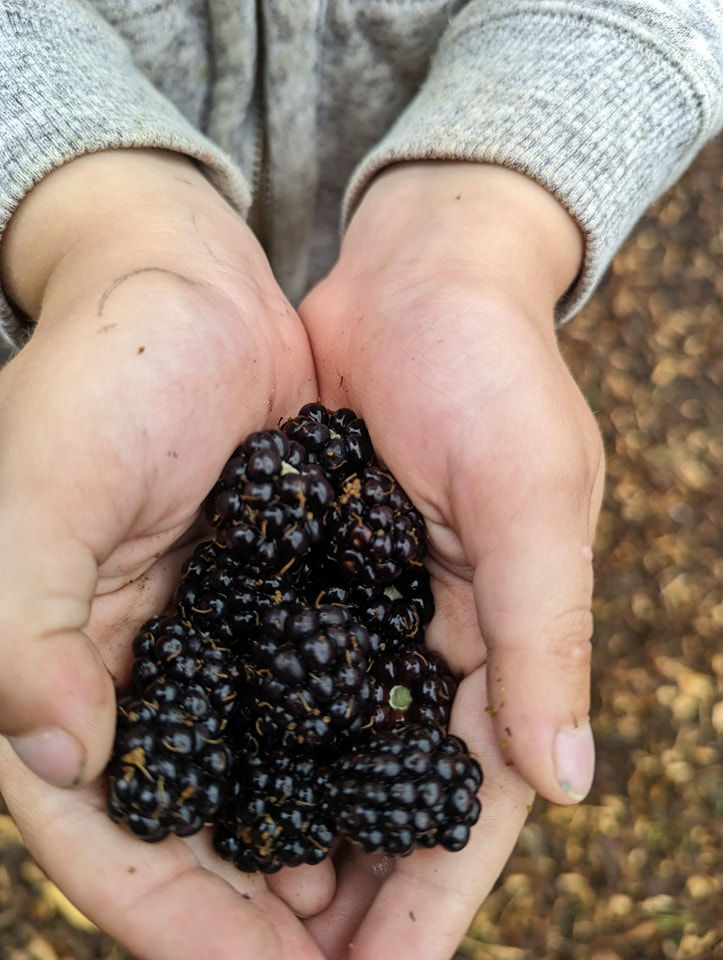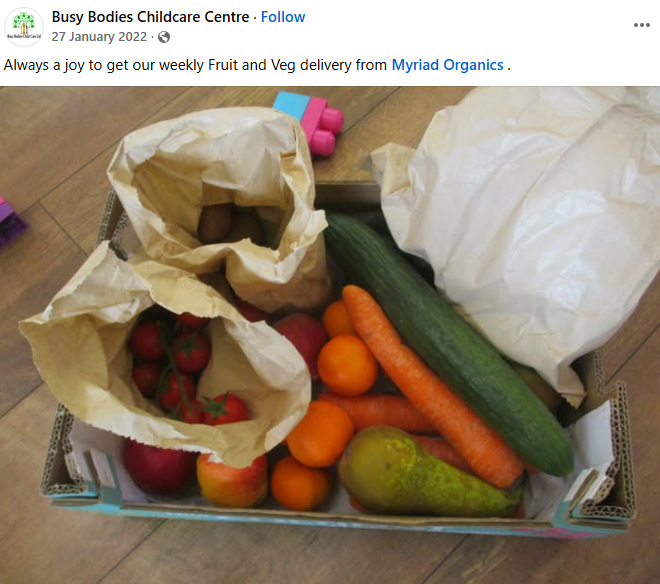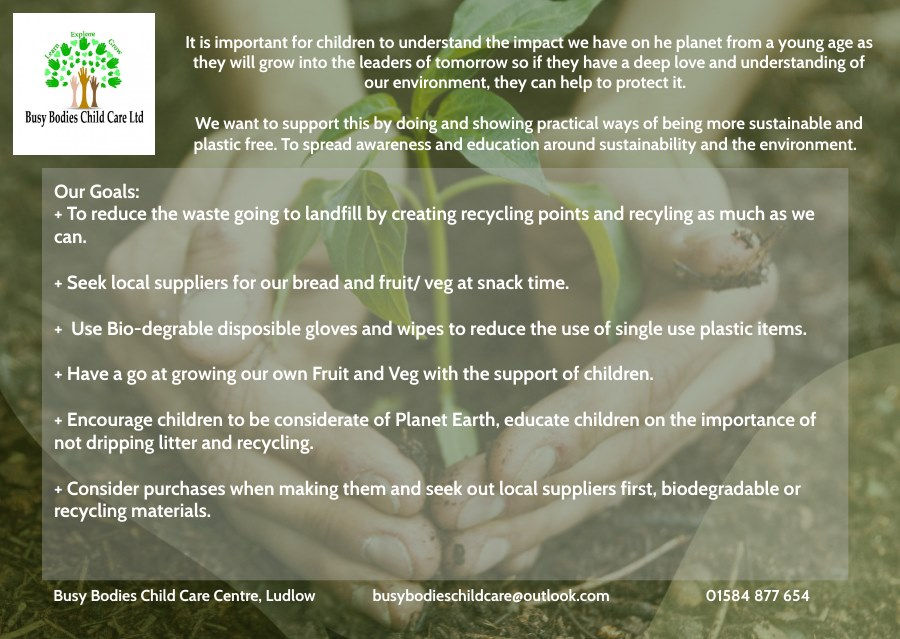Growing Green: How to Create a More Sustainable Early Years Setting (and Why It Matters)
- earlyinsights

- Nov 2, 2025
- 4 min read

In early childhood, our actions carry weight—not just for the here and now, but for the seeds we plant for generations to come. Bringing eco-friendly thinking into an early years setting is more than a “nice to have.” It’s an investment in children’s understanding, identity, and lifelong habits.
At my setting we discovered that if we put into practice, even small changes, done thoughtfully over time, they can ripple out in ways we never anticipated. My College
Below, I share some of the strategies we used, reflections on impact, and guidance for how you might begin (or extend) your own eco journey — in a way that’s feasible, meaningful, and grounded in the children, the setting, and the community.
🌿 Why It Matters: The Short and Long View on Eco Practice
Short-term benefits for children:
Connection with nature: When children plant seeds, care for plants, or build bug hotels, they begin to see themselves as part of a living system. We described these everyday acts as “connecting children to nature.” My College
Agency & ownership: Involving children in decisions about recycling, gardening, or resource reuse gives them a sense of power and responsibility. It turns them from observers into change-makers.
Critical thinking & inquiry: Deciding what to reuse, how to reduce waste, or how to care for animals invites exploration, problem-solving, hypothesising, and reflection.
Values & habits: Young minds are malleable. Introducing sustainable habits now—sorting recycling, questioning waste, preferring reusables—makes them more likely to carry those habits into later life.

Long-term, life-shaping impact:
Lifelong eco-identity: Habits that feel natural in early years can inform adult behaviour. Recycling, energy awareness, consumption decisions—all are more likely to stick if practiced from young ages.
Ripple effect in communities: What children learnt in the setting they took home and shared with parents and grandparents. They noticed things in their community and at home. They took their ideas out into the wider world to understand them furhter.
Civic mindset & agency: Children taught early that their actions matter are more likely to feel empowered to engage, advocate, and act in their communities as they grow.
Sustainability as default, not exception: Over time, what once felt “extra” becomes integral. For settings, this means lower waste, more meaningful routines, and a reputation as forward-thinking and values-driven.
In short: eco practice in early years supports children’s growth as learners and as citizens of their world.
💡 Eco Ideas in Action: Examples from Busy Bodies (and How You Could Adapt)
Here are some of the steps we at Busy Bodies took, along with tips for adapting them in your own context:
Strategy | What Busy Bodies Did | Tips / Adaptations for Your Setting |
Start small, embed gradually | We selected specific, achievable goals, introduced one change at a time (e.g. reusable wipes, bus travel) and only moved on when each change felt embedded. | Pick 1 or 2 eco goals you feel passionate about. Don’t try to change everything at once. Focus on embedding before expanding. |
Involve children at every stage | Children collected food scraps, sorted waste, replanted seeds, built bug hotels, went on litter-picking walks. | Offer sorting bins with child-friendly labels, invite children to design a mini garden, or plan a weekly litter walk. Use their ideas in planning. |
Go local and visible | We shifted to using a local organic greengrocer for produce delivery; children watched the deliveries and sang about the fruit box. | Explore local suppliers, farmers, or community gardens. Invite them in or ask for seasonal produce boxes. Use those deliveries as learning moments. |
Reusables & reduced waste | We moved to plastic-free / compostable wipes and supported / encouraged the use of cloth nappies. | Investigate your current consumables. Which are single-use? Could you shift to compostables or reusables? Support families who want to use cloth nappies or alternatives. |
Share, reflect, grow together | We publicly shared policy, goals, and progress with parents and staff. We learned from other settings and encouraged reciprocal learning. | Use newsletters, social media, or parent meetings to share your eco journey. Invite feedback, celebrate small wins, and collaborate with nearby settings. |

A Journey, Not a Sprint: How to Begin (Without Overwhelm)
Reflect on what you already do well. Start by listing eco-friendly practices you already have (e.g. recycling, turning off lights). Recognising existing strengths builds confidence and provides entry points.
Set a “just manageable” goal.Rather than tackling all areas at once, pick one change that feels likely and sustainable (e.g. composting fruit scraps, switching wipes). Focus deeply there before branching out.
Engage your team from day one.Share the vision, invite input, co-create goals. Change works better when it’s collective.
Involve children meaningfully.From planning to implementation to reflection, children’s voices should guide the eco plan. Their curiosity and ideas are powerful.
Use research, community, and networks. Read blogs, case studies, and research (as Busy Bodies did). Connect with local organisations and practitioners for ideas and support.
Document, share, reflect.Keep a journal or blog your progress. Share with families, colleagues, and other settings. Use reflection cycles to adapt and improve.
Celebrate small wins. Every change—however small—is a success. These help sustain morale and momentum.

Final Thoughts: Planting Seeds for Tomorrow (Today)
What defines a truly sustainable early years setting is not perfection, but intention and persistence.
“Every little step that you make will be a step in the right direction.” My College
When children grow up seeing that we care for the planet, that their contributions matter, and that change comes bit by bit, they carry that mindset forward. They become not just learners—but stewards, change-makers, and hopeful contributors to the world.
At Early Insights, I would love to support your eco journey — from planning to embedding, reflecting to evolving. Let’s grow green together.
If you’d like help designing an eco plan suited to your context, or want to explore small but powerful changes you can begin tomorrow — reach out via earlyinsights.co.uk.




Comments